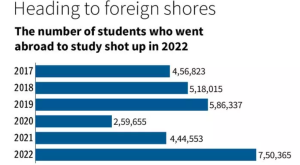Resources for Applicants

Finding the right scholarship can feel like searching for a needle in a haystack. Luckily, numerous resources are available to streamline your search and improve your chances of success. This section will equip you with tools and strategies to navigate the scholarship application landscape effectively.
Useful Websites and Resources
Knowing where to look is key. A wide array of websites and resources provide scholarship information, application assistance, and valuable insights. These resources are your allies in the scholarship journey.
- Scholarship Search Engines: Specialized scholarship search engines like Fastweb, Scholarships.com, and Sallie Mae’s scholarship search tool are designed specifically to aggregate scholarship opportunities. These platforms often filter by field of study, location, and other criteria, making the search much more efficient.
- University Websites: University websites frequently list scholarships available to their students. Checking university websites, especially the financial aid or admissions offices, can lead to uncovered opportunities.
- Government Websites: Government organizations often offer scholarships for specific fields or programs. Websites like the US Department of Education or the equivalent for your country provide valuable information and potential links to scholarship opportunities.
- Nonprofit Organizations: Numerous nonprofits and foundations offer scholarships for various reasons. Their websites often list available scholarships based on merit, need, or specific demographics.
Scholarship Databases
Extensive databases compile scholarship information, making the search process far easier. Understanding these databases is crucial for efficient searching.
- National and International Databases: These databases collate scholarship information from numerous sources, offering a comprehensive view of available opportunities. Examples include the National Scholarship Database of your country, or a global scholarship platform for international students.
- Specialized Databases: Some databases specialize in specific fields, like engineering, arts, or business. These specialized databases can provide a more focused search, reducing the time spent on irrelevant opportunities.
- University-Specific Databases: As mentioned earlier, universities frequently maintain databases of their own scholarships. These databases are invaluable for students considering studying at those institutions.
Finding Additional Resources
Discovering extra scholarship opportunities requires proactive searching and networking.
- Networking: Connecting with professors, alumni, and professionals in your field can lead to hidden scholarship opportunities. Networking events, conferences, and online communities can help you identify potential scholarships.
- Professional Organizations: Professional organizations in your field often offer scholarships or have links to relevant scholarship opportunities. They understand the challenges and needs of their members, making these organizations a worthwhile resource.
- Alumni Associations: Alumni associations are a significant resource. They often have information on scholarships for their alumni or for current students interested in specific fields of study.
Accessing Scholarship-Specific Information
Understanding the nuances of each scholarship is vital. Thorough research and preparation can improve your chances of securing funding.
- Eligibility Criteria: Carefully review the eligibility criteria of each scholarship. This includes requirements regarding GPA, major, nationality, and other relevant factors.
- Application Procedures: Familiarize yourself with the specific application process for each scholarship. Understanding the required documents, deadlines, and submission methods will help avoid potential errors.
- Scholarship Descriptions: Read the detailed descriptions of each scholarship to fully grasp the opportunity. Understand the purpose of the scholarship, the amount of funding, and the requirements to secure the scholarship.
Reliable Sources for Scholarship Information
Verifying the authenticity of scholarship information is crucial. This prevents wasted time and effort on unreliable resources.
- Official Websites: Scholarship providers’ official websites are the most reliable sources for information. These websites are usually the first place to check for accuracy.
- Reputable Organizations: Scholarship databases and organizations with a strong track record in providing scholarship information are usually trustworthy. Reviewing their history and reputation will help you determine reliability.
- Verified Reviews and Testimonials: Look for reviews and testimonials from previous scholarship recipients to gain insights into the scholarship’s reputation and effectiveness.
Illustrative Examples
Getting a master’s degree in Europe opens doors to a wealth of opportunities. To help you visualize the experience, let’s look at a specific example of a master’s program at a European university. This will give you a better understanding of the program structure, academic focus, and the overall experience.
Master of Science in Data Science at the University of Amsterdam
This program, offered by the esteemed University of Amsterdam, is a rigorous yet rewarding journey into the field of data science. The program emphasizes practical application and problem-solving skills.


